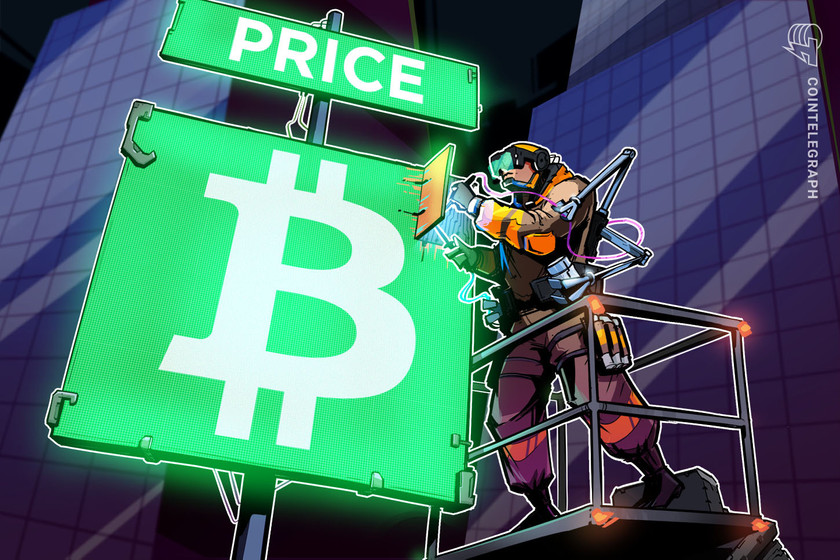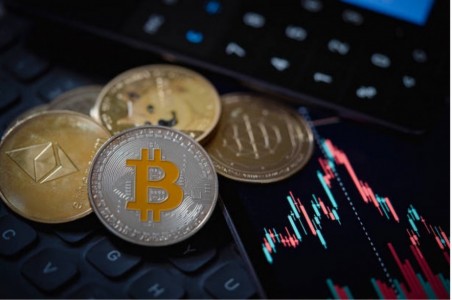US bank bloodbath: Bitcoin hits $23.7K as BTC price analyst calls SVB dip ‘bear trap’

Bitcoin price is up nearly 20% in days as Wall Street opens to multiple bank stocks halted due to extreme losses.
Bitcoin (BTC) hit its highest since the start of the month on March 13 as U.S. bank stocks saw the largest mass halt in history.

BTC price sees “phenomenal” rebound
Data from Cointelegraph Markets Pro and TradingView tracked a thoroughly bullish hourly candle for BTC/USD, which reached $23,725 on Bitstamp.
The move was eagerly anticipated by market participants, many of whom had warned of extreme volatility at the Wall Street open.
45min into US open, and banks getting halted left, right and centre. By 4pm eastern the Fed Funds might be back at 0%. $XAU $XAG $BTC $ETH is the only way!
— Arthur Hayes (@CryptoHayes) March 13, 2023
This came true, with Bitcoin and altcoins benefiting from intense uncertainty surrounding bank stocks, in particular, as trading got underway.
The fallout from the failure of two more U.S. banks over the weekend was keenly felt, not just at home but in Europe, where banks also saw heavy losses.
“Massive move of Bitcoin. Now facing next resistance zone (I couldn’t get $21.6K),” Cointelegraph contributor Michaël van de Poppe, founder and CEO of trading firm Eight, reacted.
“Trend is back up, buying the dip on S/R flips seems the game. Resistance around $23.3-23.6K, if it stalls and consolidates -> altcoins should continue.”

Trader and analyst Rekt Capital, who previously argued that the monthly candle needed to close to confirm a longer-term trend break, called Bitcoin’s dip below $20,000 the week prior a “bear trap.”
“The way BTC has recovered within such a short space of time just shows that the drop to ~$20000 was a Bear Trap,” he wrote in one of many tweets as BTC/USD hit $23,500.
Rekt Capital called the uptick “phenomenal” in further analysis, with 18% added versus the local lows from March 10.
Phenomenal #BTC rebound from the Pi Cycle MA and Monthly Range Low support area$BTC has rallied +18% and is now attempting a breakout from the Range
It’s been a crazy week in Crypto#Crypto #Bitcoin https://t.co/2bWKwPUlF2 pic.twitter.com/rrG0bsNita
— Rekt Capital (@rektcapital) March 13, 2023
“If $22.4k holds as the new floor, that’s all and a bit more that price needs to gain momentum to the Main Resistance in the $24.1k-$25k range and truly break through,” trader Gaah continued.
“We could have more price explosions, watch out in that region.”
Gaah shared a liquidity chart from Caue Oliveira, head of research and on-chain analysis at Brazilian crypto insights firm BlockTrends:

Bank stocks halted as contagion spreads to Europe
Outside crypto, the picture was slowly improving for U.S. stocks — with the exception of some banks.
Related: Fed starts ‘stealth QE’ — 5 things to know in Bitcoin this week
Some of the worst performers of the day included First Republic Bank, which lost 76% to see trading halted soon after the opening bell.
Overall, as entrepreneur Brian Roemmele noted, more U.S. bank stocks were halted than ever before in history.
First Republic slumps more than 60% in US premarket trading as measures taken by US authorities to calm investor concerns failed to provide relief to the regional lender’s shares. (BBG) pic.twitter.com/Jf49izSvcu
— Holger Zschaepitz (@Schuldensuehner) March 13, 2023
In addition to rethinking the likelihood of U.S. Federal Reserve interest rate hikes continuing on March 22, markets meanwhile were also reducing expectations that the European Central Bank would hike by 0.5% this week.
Among European losses on the day was the already-embattled Credit Suisse, which was down over 7% to new all-time lows at the time of writing.

“The problem for Credit Suisse (and others like it) is that it cannot cover deposit flight by borrowing in money markets. It can only go to the Swiss National Bank, in effect for a second bail out. Will the SNB play ball?” Alasdair Macleod, head of research for Goldmoney, queried.
The views, thoughts and opinions expressed here are the authors’ alone and do not necessarily reflect or represent the views and opinions of Cointelegraph.









